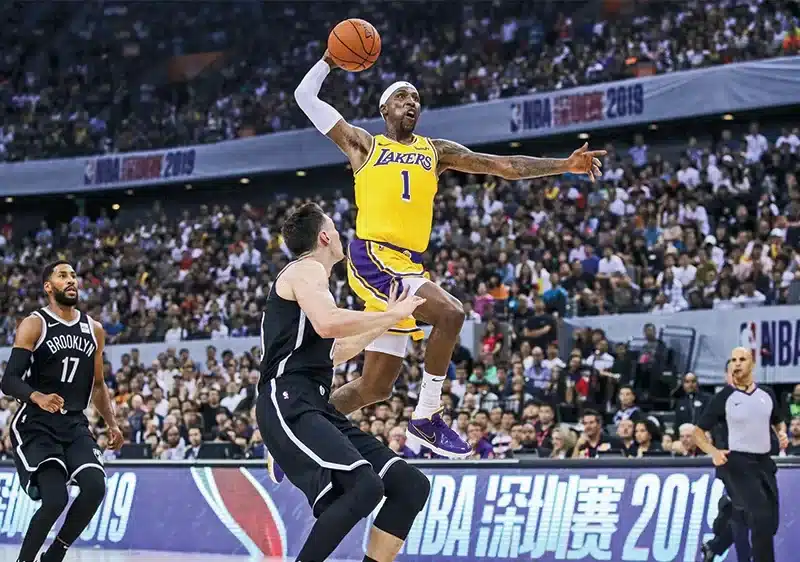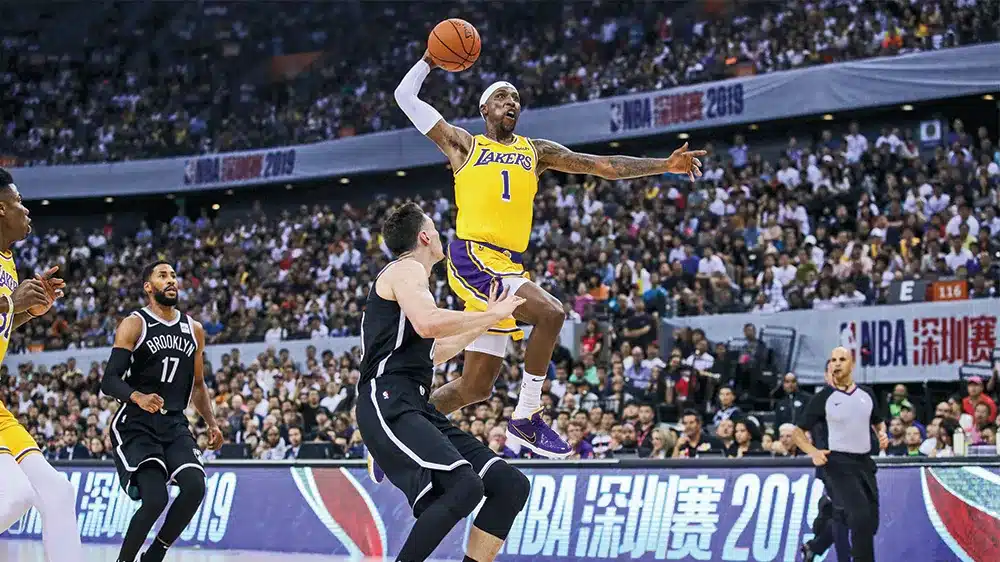NBA Global Games in China: How the League Builds Fans, Culture, and Future Stars
Over the past few months, we’ve explored how the NBA has prioritized youth basketball in China—from its NBA Academy model to the ripple effects of Chinese Basketball Association (CBA) reforms. Today, we’re diving into one of the most visible and powerful tools the NBA uses to grow the game globally: the NBA Global Games.
In particular, we’ll focus on the NBA’s Global Games strategy in China, how it benefits the league, the teams, and young fans, and what the future may hold for these international matchups.
What Are the NBA Global Games?
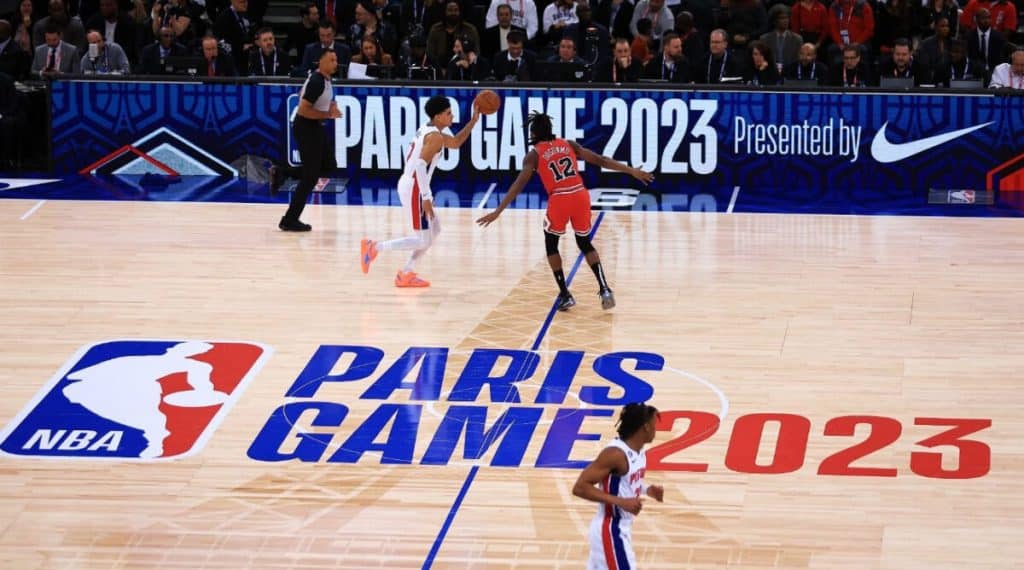
The NBA Global Games officially launched in October 2013, marking the 35th anniversary of the league’s first-ever international trip. While NBA teams had been playing exhibition games abroad for decades, this strategic rebrand signaled a new chapter of intentional global expansion into both emerging and established markets—especially China.
The Global Games build on a legacy that includes:
- The Washington Bullets’ historic 1979 trip to China, at the invitation of Premier Deng Xiaoping.
- Yao Ming’s emotional 2004 return to China as a member of the Houston Rockets.
Each of these milestones paved the way for major events like the NBA China Games, including the 2018 matchup between the Philadelphia 76ers and the Dallas Mavericks.
Spotlight: The 2018 NBA China Global Games
During China’s National Week holiday in 2018, the NBA brought its sixth annual China Games to life with two preseason matchups:
- October 5 in Shanghai: 76ers win 120–114
- October 8 in Shenzhen: Mavericks win 115–112
Although these were preseason games and didn’t count toward regular-season standings, they offered valuable opportunities for both player development and global fan engagement.
Joel Embiid led the charge in Shanghai with 22 points, 10 rebounds, and standout energy despite limited minutes. Luka Dončić, then a rising star, helped showcase the NBA’s next generation of talent on an international stage.
Why Does the NBA Host Global Games in China?
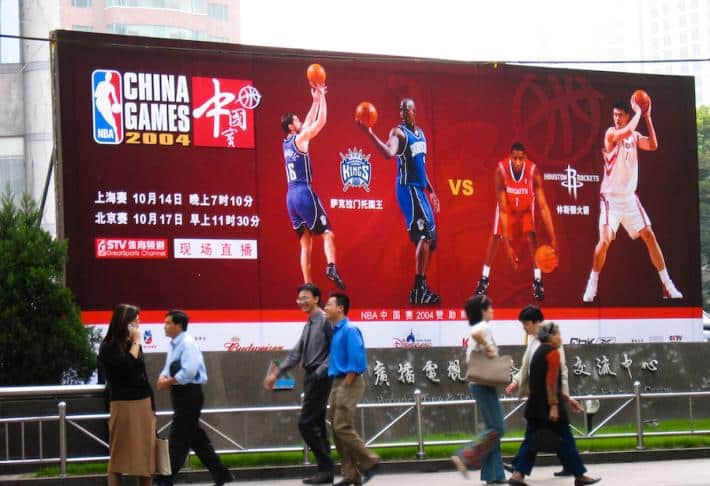
The league has two main goals:
- Grow the Game: Inspire a new generation of Chinese youth basketball players and fans.
- Promote Rising Stars: Highlight future superstars like Embiid, Simmons, and Dončić to help build international recognition.
The games also benefit the league’s image and partnerships:
- NBA Cares events tie the games to community impact.
- Brand and government partnerships deepen trust and visibility.
- Players boost personal endorsements and team branding.
For example, the Sixers opened a new NBA Cares Learn & Play Education Center in Shenzhen, and the Mavericks hosted a clinic with 50 Special Olympians.
Team Spotlights: Mavericks and 76ers
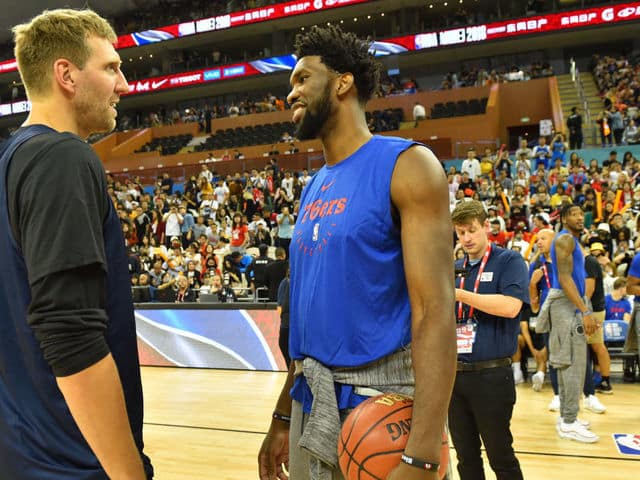
Mavericks: Connecting Through Culture
Dirk Nowitzki, beloved veteran and international ambassador, served as the face of the Mavs in China. He didn’t play due to injury, but charmed fans with speeches, meet-and-greets, and even received a symbolic gift—a guitar from Chinese basketball legend Wang Zhizhi.
More importantly, Chinese fans celebrated the debut of Ding Yanyuhang, a two-time CBA MVP. Though he scored just one point due to injury, his presence resonated with local audiences and helped personalize the NBA for millions of Chinese viewers.
76ers: Trusting the Process, Building Chemistry
Joel Embiid and Ben Simmons capitalized on pre-existing endorsement deals (Master Kong iced tea, Beats by Dre) while forming deeper bonds with their teammates. Simmons emphasized how the trip helped with team chemistry—calling it a “week-long training camp” in a new cultural setting.
Ken Pompey, the Sixers’ beat writer, noted the team’s positive mindset and commitment to embracing the full experience of traveling and playing overseas.
The Drawbacks: Travel and Timing
Despite the many upsides, there are valid criticisms:
- Travel fatigue: Flights from the East Coast to China can exceed 16 hours.
- Illness risk: Mavs players and coaches dealt with a virus during the trip.
- Timing issues: The games occur close to the regular season, leaving limited practice time.
The NBA is working on improving travel logistics, but some critics argue that players and teams may need domestic focus more than international exposure.
What’s Next for the NBA Global Games?
While China remains a cornerstone market, the NBA is also exploring other countries like India, Mexico, and Nigeria for future Global Games.
- In December 2018, the Magic played in Mexico City.
- In January, the Knicks played in London.
Each event is strategically tied to promoting young stars (like Donovan Mitchell and Mo Bamba) and reaching new basketball fans across continents.
Tensions between the U.S. and China have added complexity to NBA-China relations. However, the NBA continues to prioritize long-term partnerships in the region while expanding elsewhere in case conditions change.
Final Thoughts: The Power of Global Basketball
The NBA Global Games are more than exhibition matches—they’re a tool to drive fan engagement, youth development, and cultural exchange. From grassroots initiatives to high-profile games, every piece contributes to the global growth of basketball.
At Pro Skills Basketball, we’re proud to support this mission as a Jr. NBA Flagship Network partner in China. We’re committed to using basketball as a bridge between cultures and to inspire the next generation of players.
Ready to take the next step in your child’s basketball journey?
Pro Skills Basketball offers Club Teams, Camps, Clinics, and Academies in 25+ cities across the U.S.
👉 Find your city and sign up today to join a program focused on real development, experienced coaches, and a culture that puts players first.
📩 Contact us at admin@proskillsbasketball.com 📞 Call us at 866-996-3888

